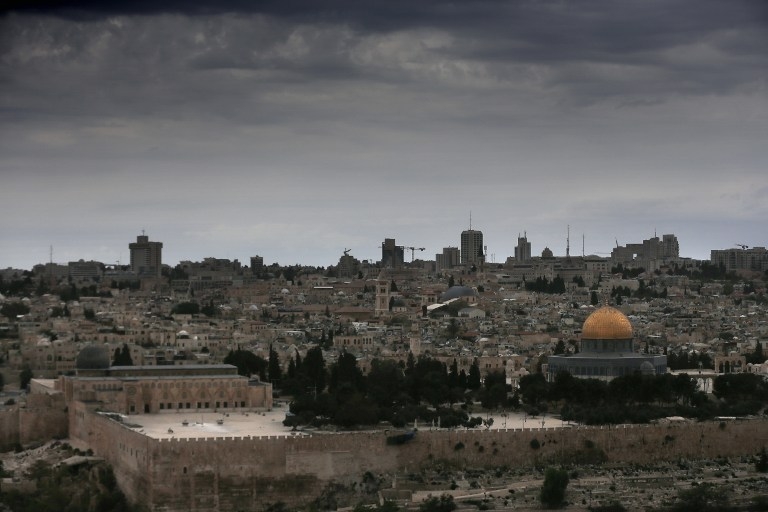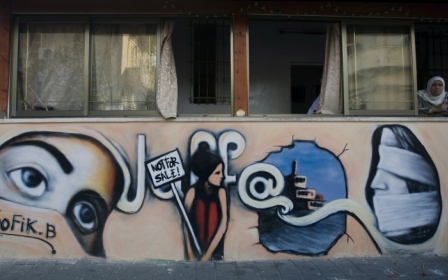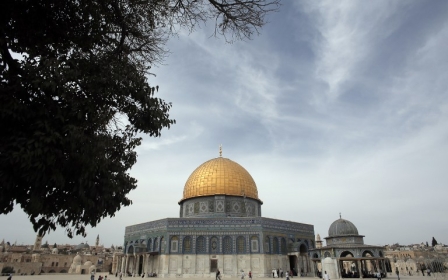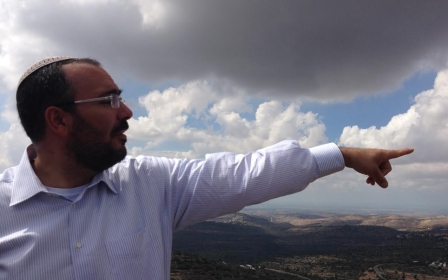Fresh Israeli-Palestinian violence after new Al-Aqsa measures

Fresh violence flared between Israelis and Palestinians on Sunday as Prime Minister Benjamin Netanyahu agreed to install security cameras at the flashpoint Al-Aqsa mosque compound, an area also known as the Temple Mount, in a bid to defuse tensions.
Early on Sunday, a Palestinian man, identified by local media as 20-year-old Azzam Azmi Shalalda, who was picking olives in Wadi Sair, near the illegal settlement of Gush Etzion, was shot several times allegedly by an Israeli settler, according to the army and security sources.
The settler claimed that Shalalda had attacked him with a knife, but the alleged assailant had already fled the scene, Ma'an News Agency reported. Israeli forces reportedly shot and injured seven Palestinians in the nearby village of Sair after the incident.
Also on Sunday, a 58-year-old settler was reportedly wounded when a Palestinian allegedly attacked him when he stepped out of his car to confront a group who were throwing stones at passing cars near the Metzad settlement, close to Sair.
Near Hebron, a Palestinian woman was shot and wounded Sunday afternoon by border police after allegedly attempting to stab Israeli police officers.
A Palestinian car in East Jerusalem was torched and racist slogans were scrawled on it in what bore the hallmarks of a Jewish extremist hate attack.
Daily violence
Knife attacks, shootings and protests have become a near daily occurrence since 1 October in the latest surge of violence in the decades-old conflict, sparking a diplomatic scramble to defuse the situation.
The focal point of the latest unrest is the holy site in Jerusalem, called Al-Aqsa by Muslims and Temple Mount by Jews, and one which is held sacred to both religions. Netanyahu on Saturday agreed on new measures to allay fears that he plans to change longstanding rules governing the site.
Netanyahu vowed that Jews would continue to be allowed to visit but not pray at the compound and agreed that 24-hour surveillance cameras could be installed.
"Israel has an interest in placing cameras on all parts of the Temple Mount," Netanyahu said in a statement on Sunday, using the Jewish term for the compound in annexed East Jerusalem.
"Firstly, to refute the claim Israel is violating the status quo. Secondly, to show where the provocations are really coming from, and prevent them in advance."
The surveillance camera announcement comes after Israel implemented a series of measures earlier this month that include sealing off the Palestinian areas of East Jerusalem neighbourhoods to car traffic, demolishing the homes of alleged attackers and easing regulations for weapons permits.
'A game changer'
However Saeb Erakat, secretary general of the Palestine Liberation Organisation, the recognised representative of Palestinians, said Netanyahu's statements were "only words, not concrete actions", while Nabil Shaath, an official from Palestinian President Mahmoud Abbas's West Bank-based Fatah, said: "There will not be calm without political prospects to definitively end the occupation."
Shaath said the status quo the Palestinians wanted was the protocol followed before the Second Intifada, or uprising, broke out in 2000, after which Israel decided who had access to the compound.
US Secretary of State John Kerry said after talks with Jordan's King Abdullah II, whose country is the custodian of the site, that security cameras would be a "game changer in discouraging anybody from disturbing the sanctity of the holy site".
Jordan's Foreign Minister Nasser Judeh said the cameras "will indeed make a difference and a very strong difference at that".
Judeh said Jordanian and Israeli technical teams were likely to meet soon "to discuss the implementation of this idea alongside other measures to maintain and enhance public order and calm".
Since the start of this month, at least 52 Palestinians and one Palestinian citizen of Israel have died in clashes or while allegedly carrying out attacks.
Eight Israelis have died in attacks. One Israeli Jew and one Eritrean asylum seeker have been killed after being mistaken for attackers.
New MEE newsletter: Jerusalem Dispatch
Sign up to get the latest insights and analysis on Israel-Palestine, alongside Turkey Unpacked and other MEE newsletters
Middle East Eye delivers independent and unrivalled coverage and analysis of the Middle East, North Africa and beyond. To learn more about republishing this content and the associated fees, please fill out this form. More about MEE can be found here.




